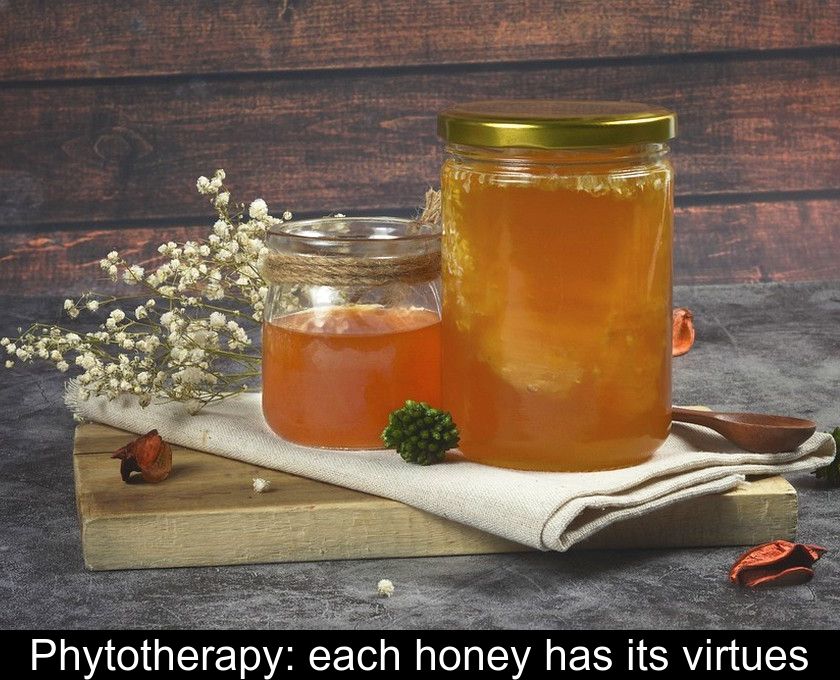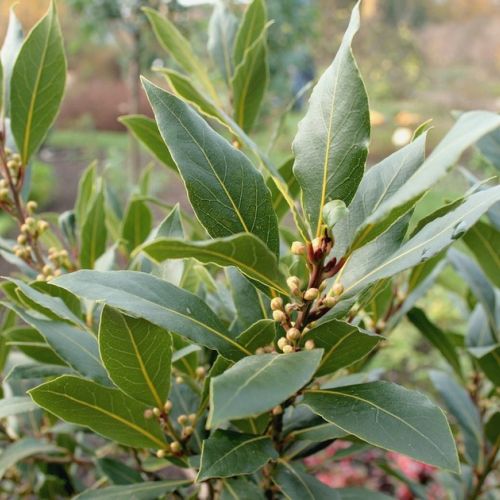Phytotherapy: Each Honey Has Its Virtues
A real beneficial cocktail, honey is antiseptic and healing. It is rich in vitamins and trace elements, beneficial to digestion, growth and bone strength. If all honeys have these qualities, their virtues differ according to the flowers and dominant plants from which they are derived. We suggest you discover the benefits of the different types of honey.
1- Acacia honey
The acacia honey has a blond color and has the characteristic of remaining liquid for a long time.
Because of its very mild flavor, it is often used to sweeten hot or cold drinks.
It is most indicated in case of diabetes because its glycemic index is low (20).
Indeed, it has the particularity of being more concentrated in fructose than in glucose so that it does not increase too much the sugar level in the blood.
2- Lavender honey
Lavender honey is a very aromatic product that turns white when it crystallizes.
It is believed to have relaxing properties but also antiseptic properties for the bronchi and lungs.
Very useful in case of respiratory tract infection, it is also effective in treating insect bites and accelerating the healing of burns and infected wounds.
3- Linden honey
The lime honey can be recognized by its lovely golden color and creamy texture.
Like the plant from which it is derived, it promotes sleep and contributes to a good nervous balance.
It is therefore particularly indicated to fight against stress and insomnia.
4- Chestnut honey
Among the different honeys, chestnut honey is distinguished by its very brown colour and its powerful taste.
It has the particular virtue of stimulating venous circulation.
It is also believed to have virtues for treating digestive disorders and constipation.
5- Heather honey
The heather honey has a dark brown color and a thick texture.
It is believed to have anti-rheumatic, diuretic and tonic properties in cases of chronic fatigue.
Indeed, this honey is rich in trace elements such as potassium, iron and sulfur.
6- Rosemary honey
The rosemary honey is characterized by a light yellow color and a very fruity taste.
Antispasmodic, it is ideal for digestive problems, stress and overwork.
7- Fir tree honey
The fir honey can be recognized by its very dark color.
Just like the essence from which it comes, it is your ally for winter: it is recommended in case of respiratory illness such as colds or bronchitis.
8- Thyme honey
Recognized as one of the honeys with the most medicinal properties, thyme honey can be recognized by its amber color and pronounced flavor.
It is very often used in prevention of infectious diseases respiratory and digestive due to its antiseptic properties. For the same reason, it has great healing abilities.
It is also believed to have invigorating and invigorating properties in case of winter diseases such as flu.
9- Mountain honey
Unlike the other honeys mentioned above, mountain honey is not monofloral but polyfloral. It is derived from different plants growing in mountainous regions.
It has anti-infectious virtues that are very useful in case of respiratory disease, intestinal or urinary tract infection.
It can be used to relieve sore throats and to heal wounds and skin inflammations.
10- Forest honey
Another polyfloral honey, forest honey can be recognized by its dark color and strong taste.
Due to its richness in iron, it is indicated for people who suffer from anemia or who are convalescing.
It is also believed to have benefits in case of respiratory infection because of the essences (pine, fir) from which it comes.
Good to know
At the time of harvest, all honeys are liquid. They then crystallize more or less quickly with time.
Unlike a mountain, forest or all-flower honey, a monofloral honey is made from a single plant variety.
To qualify as monofloral, it must be from at least 80% of a single variety.








